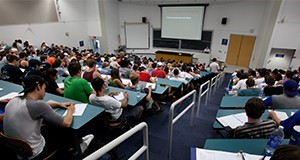Abstract
Teachers of all subjects must familiarize themselves with the specific needs of the students in their classrooms, especially in the case of students with autism spectrum disorders (ASD) and Asperger’s syndrome because students may vary greatly in the degree to which they are affected by these disabilities. This 4-page fact sheet explains the differences between autism and Asperger’s syndrome and how instructors can modify their lessons to effectively meet the needs of learners with these disabilities in different types of learning environments and achieve greater classroom success for the educator and the learner. Written by Sara E. LaRose and Andrew C. Thoron, and published by the Agricultural Education and Communication Department, December 2015.
References
Bullard, H. R. 2004. "20 ways to... ensure the successful inclusion of a child with Asperger syndrome in the general education classroom." Intervention in School and Clinic, 39(3): 176-180. https://doi.org/10.1177/10534512040390030801
O'Reilly, M. F., J. Sigafoos, and G. Lancioni. 2007. "Teaching Students with Autism Spectrum Disorders/Pervasive Developmental Disorders." In S. Vaughn, C.S. Bos, & J.S. Schumm (Eds.), Teaching Students Who are Exceptional, Diverse, and at Risk in the General Education Classroo,142-159.Location: Pearson Education, Inc.
National Institute of Neurological Disorders and Stroke. 2015. "Autism Spectrum Disorder Fact Sheet." National Institute of Health. http://www.ninds.nih.gov/disorders/autism/detail_autism.htm

